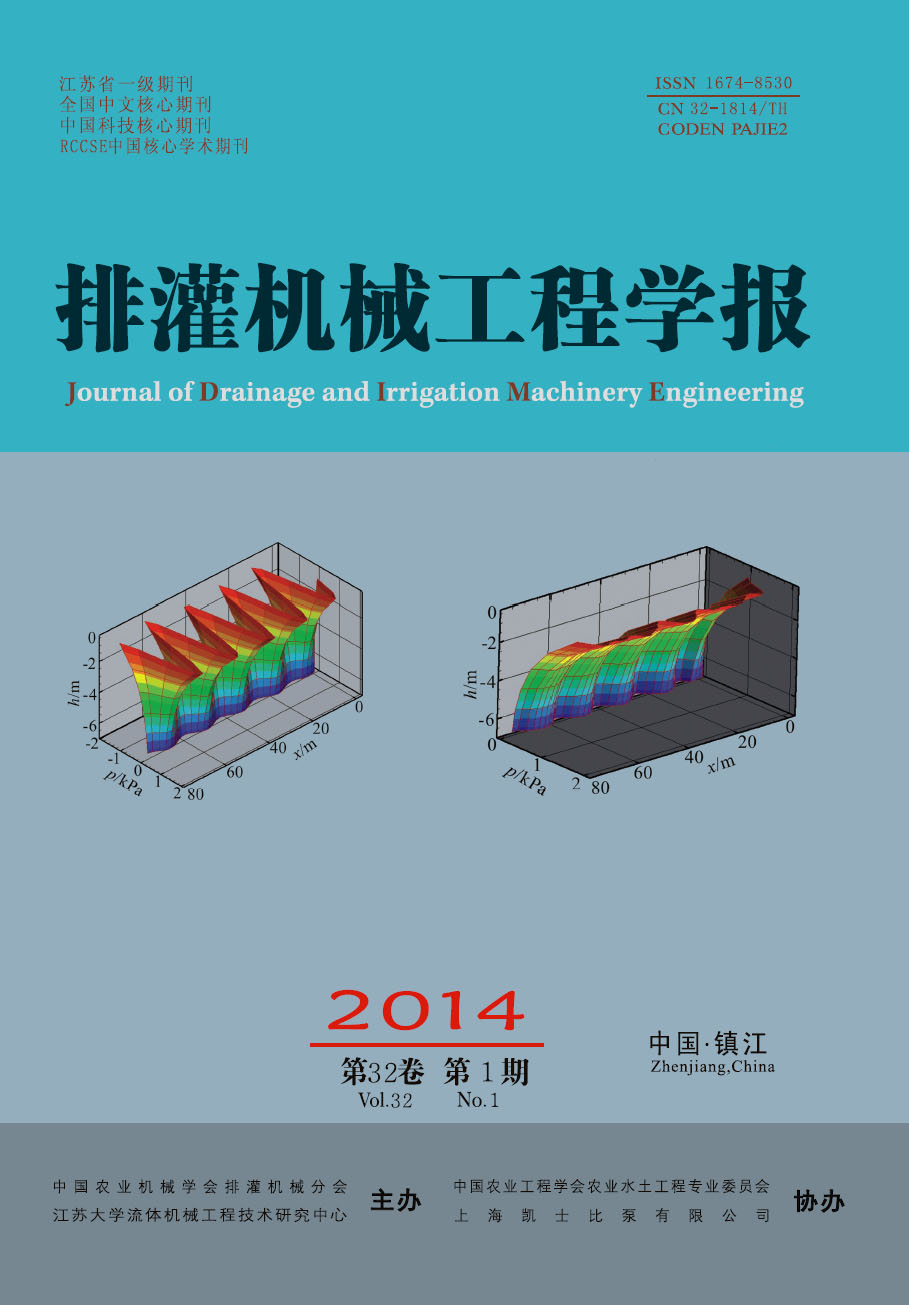Flow pattern and hydraulic performance of tubular pump
Q3 Engineering
引用次数: 1
Abstract
In order to establish a relationship between flow pattern and hydraulic performance of a tubular pump, the flow pattern and hydraulic performance at a low flow rate, best efficiency point and a high flow rate were investigated by means of flow simulation, performance test and PIV measurement in a tubular pump. The steady flow field in the pump was obtained through solving the time-averaged N-S equations in the multiple reference frames (MRF) with the help of the SIMPLEC algorithm and the RNG k-e turbulence model. The flow patterns in the pump were analyzed at different operating points. There was a large recirculation zone before the blades inlet when the pump operated at the low flow rate. The flow patterns were fine and there was no any reverse flow regions in the pump when it worked at the BEP (Best Efficiency Point) and the high flow rate. The results indicated the hydraulic loss in the suction pipe is similar to that in a normal pipe, but the hydraulic loss in the discharge pipe depended on operating points. A minimum hydraulic loss in the discharge appeared at the BEP. The estimated performance was in agreement with the test data, both the predicted flow patterns and the PIV measurements showed that there was remarked reverse flow region in front of blades near the tip and there existed a large separated flow zone near the hub downstream of blades at the low flow rate. Thus, attention should be paid on the flow pattern in impeller and guide vanes at a low flow rate in the optimal design of such a tubular pump.列管泵的流态与水力性能
为了建立列管泵的流态与水力性能之间的关系,采用流态仿真、性能试验和PIV测量等方法,对列管泵在低流量、最佳效率点和大流量时的流态和水力性能进行了研究。利用SIMPLEC算法和RNG k-e湍流模型,通过求解多参考系(MRF)下的时均N-S方程,得到了泵内的稳态流场。分析了不同工况下泵内的流态。当泵在低流量工况下运行时,叶片入口前存在较大的再循环区。在最佳效率点和大流量工况下,泵内流态良好,无回流区。结果表明:吸入管道的水力损失与普通管道相似,而排出管道的水力损失与工作点有关。在最大压力点处,水力损失最小。估计性能与试验数据吻合,预测流型和PIV测量结果均表明,叶片前靠近叶尖处存在明显的逆流区,叶片下游靠近轮毂处在低流量下存在较大的分离流区。因此,在对此类列管泵进行优化设计时,应注意小流量时叶轮和导叶内的流态。
本文章由计算机程序翻译,如有差异,请以英文原文为准。
求助全文
约1分钟内获得全文
求助全文

 求助内容:
求助内容: 应助结果提醒方式:
应助结果提醒方式:


